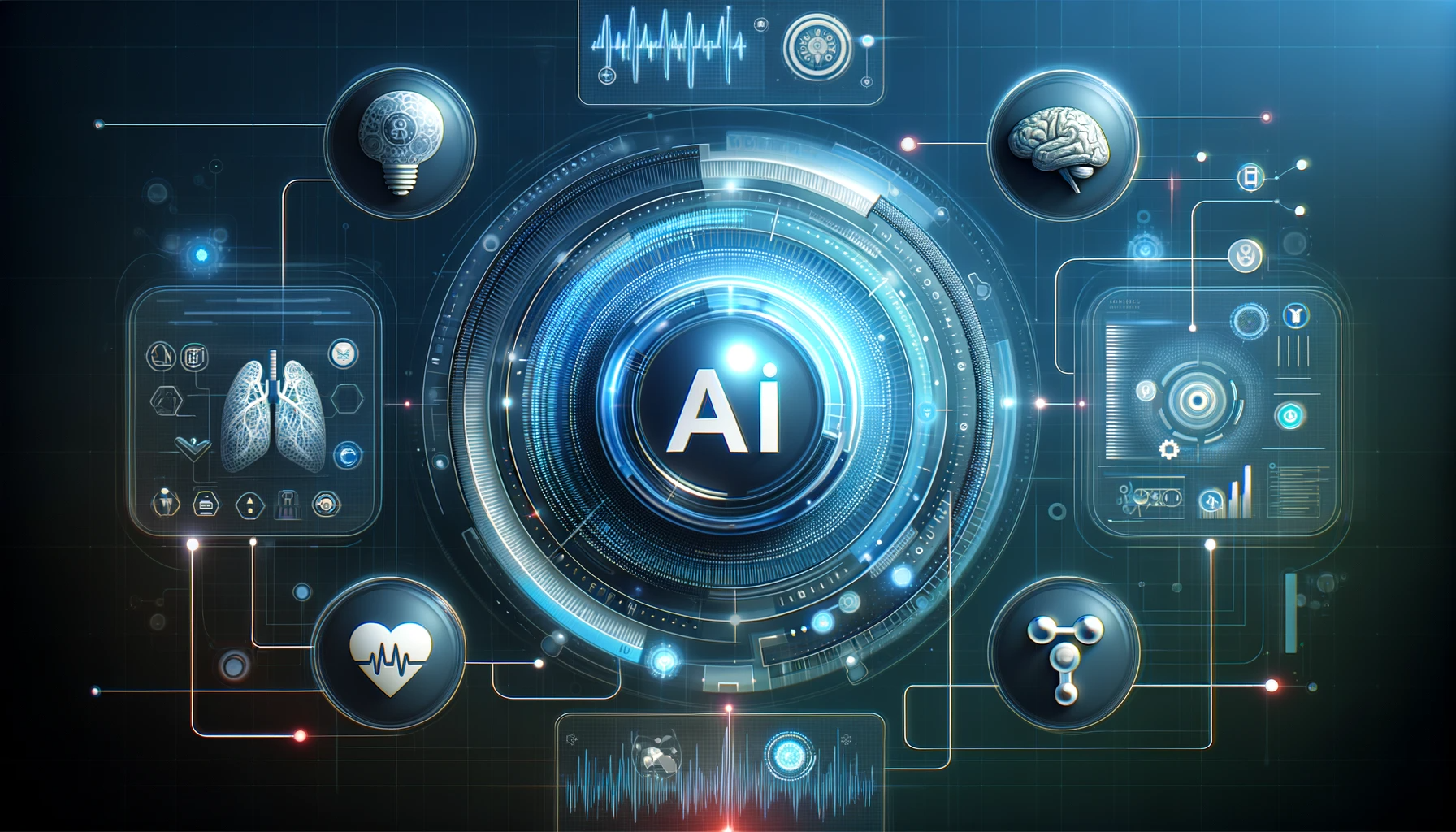
Revolutionizing Healthcare: The Role of AI in Product Development
Introduction
The Intersection of AI and Healthcare Product Development: A Game-Changer in Medicine
In the dynamic world of healthcare, the emergence of Artificial Intelligence (AI) is not just an innovation but a revolution. From streamlining drug discovery to personalizing patient care, AI is redefining what's possible in healthcare product development. Particularly, in areas like prescription synchronization and Electronic Health Records (EHR), AI is playing a pivotal role in transforming the landscape. But how exactly is AI reshaping this field, and what does the future hold? This blog post delves into the transformative power of AI in healthcare product development, providing insights and foresights for enthusiasts and professionals alike.
Groundbreaking AI Applications in Product Development
Innovating Healthcare: AI's Pivotal Role
Artificial Intelligence (AI) is not just a buzzword in the tech world; it's a powerhouse driving innovation, especially in healthcare. One of the most significant applications is in Electronic Health Records (EHR). By harnessing AI, EHR systems can predict patient risks, streamline treatment plans, and offer personalized healthcare insights. This transformation leads to enhanced patient care and optimized clinical workflows.
In the realm of prescription synchronization, AI is equally groundbreaking. AI algorithms can manage and synchronize multiple patient medications, ensuring timely and accurate medication dispensing. This not only improves patient adherence to medication but also reduces the risks associated with improper medication management.
Moreover, AI's role extends to areas like diagnostic imaging, where it assists in the early detection of diseases, and in drug development, where it accelerates the process of finding new therapeutic molecules. These advancements in healthcare product development are not just enhancing operational efficiencies but are also fundamentally improving patient outcomes.
Case Studies: AI in Successful Product Launches
Transformative Stories from the Frontlines of AI and Healthcare
The real-world impact of AI in healthcare product development is best understood through case studies. One such example is the use of AI in improving EHR systems. By implementing AI algorithms, EHR systems have become more than just digital records; they are now tools for predictive analysis, offering insights into patient health trends and potential risks. This proactive approach has led to improved patient outcomes and more efficient healthcare services.
Another notable case is AI's role in prescription synchronization. A leading pharmacy chain implemented an AI system to synchronize patient medication schedules, resulting in a significant increase in medication adherence and patient satisfaction. This not only streamlined the pharmacy's operations but also played a crucial role in enhancing patient health.
In drug development, AI's ability to rapidly analyze vast datasets has shortened the time to market for new drugs. For instance, a biotech company used AI to identify potential drug candidates for a specific disease, reducing the initial discovery phase from years to mere months. This acceleration in drug development is crucial in responding to health crises and advancing medical science.
These case studies illustrate the profound effect AI has on healthcare product development, marking a new era where technology and medicine converge for the greater good.
Future Trends in AI for Product Development
Navigating Tomorrow: AI's Expanding Horizon in Healthcare
As we look to the future, the role of AI in healthcare product development is poised to expand even further. Emerging trends indicate a move towards more personalized and precision medicine, with AI leading the charge. Here's a glimpse into what we can expect:
- Advanced Predictive Analytics: AI will evolve to predict patient health outcomes with greater accuracy. This will not only improve preventive care but also enable healthcare providers to tailor treatments to individual patient needs.
- Integration with Genomics: AI's integration with genomics will revolutionize personalized medicine. By analyzing genetic data, AI can assist in developing personalized treatment plans, enhancing the efficacy of therapies.
- Robotic Process Automation (RPA): RPA, powered by AI, will automate routine tasks in healthcare settings, such as patient scheduling and billing, freeing up healthcare professionals to focus on patient care.
- AI in Medical Imaging: AI's role in medical imaging will grow, with advanced algorithms providing more detailed and accurate interpretations. This will aid in early disease detection and treatment planning.
- AI-Enabled Drug Discovery: AI will continue to transform drug discovery by identifying potential drug candidates at a pace and scale previously unimaginable, significantly reducing the time and cost of bringing new drugs to market.
These trends highlight a future where AI not only enhances healthcare product development but also fundamentally changes how we approach health and treatment.
Leveraging AI Innovations for Business Growth
AI as a Catalyst for Healthcare Innovation
The potential of AI in healthcare is not just limited to improving patient care; it's also a significant driver for business growth. Companies in the healthcare sector can leverage AI to gain a competitive edge, enhance operational efficiency, and drive innovation. Here's how businesses can capitalize on AI innovations:
- Data-Driven Decision Making: AI enables businesses to make informed decisions by analyzing large datasets, including patient records, treatment outcomes, and market trends. This leads to better strategic planning and resource allocation.
- Optimizing Operational Efficiency: AI-driven automation of routine tasks such as patient data entry, appointment scheduling, and billing processes reduces operational costs and improves efficiency.
- Personalizing Patient Experiences: AI's ability to analyze patient data allows for personalized healthcare experiences. This not only enhances patient satisfaction but also improves treatment outcomes.
- Innovative Product Development: Businesses can use AI to identify gaps in the market and develop innovative products and services. AI-driven analytics provide insights into emerging healthcare needs, driving the development of cutting-edge solutions.
- Enhancing Market Competitiveness: By adopting AI, healthcare businesses can stay ahead of the curve, offering advanced solutions that set them apart in a competitive market.
Incorporating AI into healthcare businesses is not just a trend but a strategic imperative to drive growth and innovation in an ever-evolving industry.
Conclusion
Embracing AI: The Future of Healthcare Product Development
As we've explored, the integration of AI in healthcare product development is more than just a technological advancement; it's a paradigm shift in how we approach health and wellness. From enhancing EHR systems to revolutionizing prescription synchronization, AI is at the forefront of this transformation, offering smarter, faster, and more personalized healthcare solutions.
The case studies and future trends we discussed underscore the vast potential of AI in healthcare. By embracing these technologies, businesses in the healthcare sector can not only improve patient outcomes but also drive growth and innovation. The future of healthcare product development is undoubtedly intertwined with AI, promising a new era of efficiency, personalization, and advancement in medical science.
As AI continues to evolve, it invites us to reimagine the possibilities in healthcare, making it an exciting time for both healthcare professionals and patients. The journey of AI in healthcare is just beginning, and the prospects are as limitless as the technology itself.

Post Address
3213 Dalhart Dr, Fort Worth TX 76179
General
Phone: (800) 839-1129
Email: sales@AnterisIndustries.com
Operation Hours Central Standard Time
Mon-Sat: 09.00 to 05.00 (Sunday: Closed)


